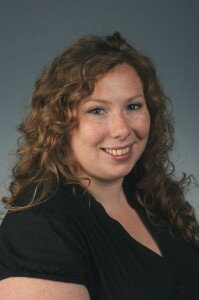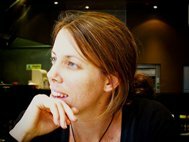By Helen Hamilton, Sightsavers and Yael Velleman, WaterAid
Last week, as the global trachoma-community gathered in Geneva for GET2020 (the WHO-led international Alliance for Global Elimination of Trachoma by 2020) there was a significant, and now permanent, addition to the agenda – WASH (water, sanitation and hygiene). As we move closer to the 2020 elimination goal for this blinding NTD, it was exciting to see water, sanitation and hygiene being given due importance, with its own roundtable session.
So why was this one session such an important milestone? Trachoma is spread where poverty and poor sanitary conditions persist. Despite the fact that two of the four elements of the WHO endorsed SAFE strategy to control and eliminate blinding trachoma (Facial cleanliness and Environmental improvements) rely on successful implementation of WASH interventions, the implementation of the F and E components of SAFE is frequently under-prioritised in planning and implementation of trachoma programmes.
At GET2020 we saw water, sanitation and hygiene come up again and again in all country presentations. Face washing and environmental improvements are consistently the most challenging action areas within the SAFE strategy implementation. Although one of the Millennium Development Goals (MDGs) focuses on improving access to clean water and sanitation, with less than three years to go until the MDG deadline there are currently 2.5 billion people with no access to improved sanitation.
F and E lessons shared at GET2020 included those from Ghana where trachoma elimination has almost been achieved. Here, the formation of a joint taskforce between all relevant ministries and agencies for planning and budgeting, as well as leadership and commitment by the government, has ensured the successful implementation of the full SAFE strategy. The use of research evidence was also important to bring on board the non-health ministries.
Participants at the WASH session agreed that improved collaboration is not only possible but essential. All stakeholders must unite around a common vision on disease reduction and improved WASH services, and work together to create national and international planning and budgeting platforms. These recommendations for cross-sectoral collaboration are echoed in a new policy paper launched at the meeting by Sightsavers and WaterAid –WASHing away blinding trachoma.
We hope that future GET2020 meetings will provide a regular forum for sharing different countries’ experiences and reporting on progress against SAFE strategy implementation.
We are now looking forward to the World Health Assembly (WHA) later in May where for the first time all 17 NTDs are being recognised together under one resolution. This is positive progress building on the momentum generated by the 2012 London Declaration and the WHO Road Map. Given the critical role of WASH in the prevention and care of a number of NTDs, we hope the resolution will make strong recommendations on WASH, and that these will be implemented by endemic countries. The commitment demonstrated by GET2020 serves as a positive example that should be carried forward to the WHA and beyond.
Bios:
 Helen Hamilton is policy advisor for neglected tropical diseases at Sightsavers, an international development organisation working to combat avoidable blindness and support those who are irreversibly blind in developing countries. Helen’s work focuses on highlighting the impact of NTDs within global health and development and building the policy links between NTD and other sectors- particularly health and WASH. She holds a Bachelor’s degree in international studies and political science from the University of Birmingham and a Master’s degree in conflict, security and development from Kings College London.
Helen Hamilton is policy advisor for neglected tropical diseases at Sightsavers, an international development organisation working to combat avoidable blindness and support those who are irreversibly blind in developing countries. Helen’s work focuses on highlighting the impact of NTDs within global health and development and building the policy links between NTD and other sectors- particularly health and WASH. She holds a Bachelor’s degree in international studies and political science from the University of Birmingham and a Master’s degree in conflict, security and development from Kings College London.
 Yael Velleman is a senior policy analyst on Health and Sanitation at WaterAid, an international non-governmental organisation with a mission to transform lives by improving access to safe water, improved hygiene and sanitation in the world’s poorest communities. Her work focuses on fostering a closer engagement between WASH and health agencies through improved policy, research and programming. She holds a Masters Degree in Health Policy, Planning and Financing from the London School of Hygiene and Tropical Medicine.
Yael Velleman is a senior policy analyst on Health and Sanitation at WaterAid, an international non-governmental organisation with a mission to transform lives by improving access to safe water, improved hygiene and sanitation in the world’s poorest communities. Her work focuses on fostering a closer engagement between WASH and health agencies through improved policy, research and programming. She holds a Masters Degree in Health Policy, Planning and Financing from the London School of Hygiene and Tropical Medicine.
